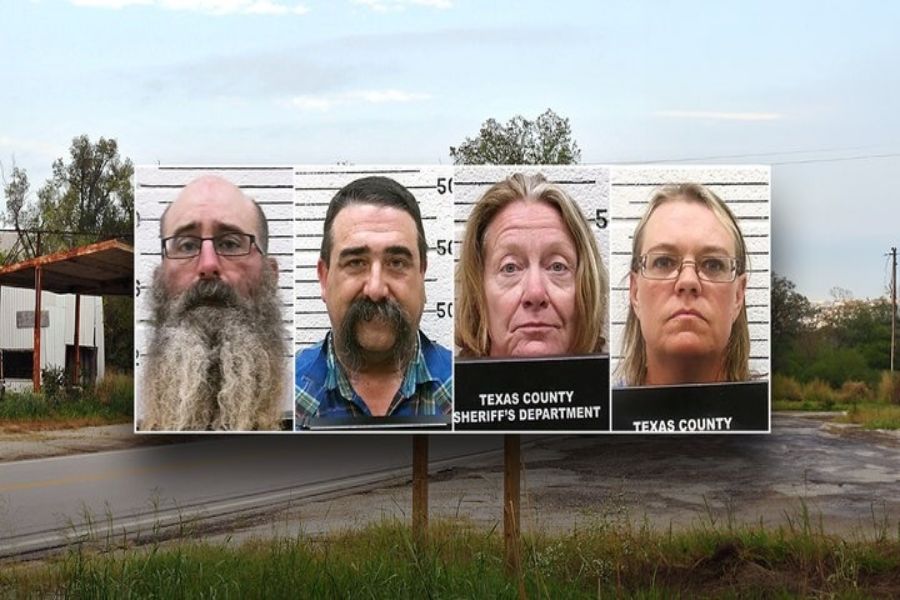
In a shocking turn of events that has gripped the heartland of America, the bodies of two Kansas mothers, Veronica Butler, 39, and Jilian Kelley, 27, were discovered in a freezer buried in a lonely cow pasture. This grim discovery in early May followed an intense investigation triggered by their disappearance on March 30. The women were last reported heading to pick up their children, a routine journey that turned into a nightmare when their car was found abandoned near the Oklahoma-Kansas border.
The search for Butler and Kelley initially ended in April without success. Still, it resumed after new leads emerged, leading investigators to a remote area where they conducted a two-day excavation of a suspected burial site. The discovery of the bodies inside a chest freezer not only confirmed the worst fears about the women’s fate but also hinted at the complexity and premeditation behind the murders.
The case escalated quickly with the arrest of five individuals connected to the disappearance. Among the suspects are Tad Bert Cullum, 43; Tiffany Machel Adams, 54; Cole Earl Twombly, 50; Cora Twombly, 44; and Paul Grice, 31. These arrests have drawn attention to the suspects’ involvement in a fringe, religiously affiliated anti-government group named “God’s Misfits.” However, the exact role of this group in the crime remains under investigation.
The legal documents released in the case shed light on disturbing conversations that hint at the meticulous planning behind the crime. Particularly unsettling was an inquiry by Grice about the longevity of DNA on clothing buried underground and whether it was possible to smuggle a person and their family to Mexico. These details suggest a level of criminal sophistication and desperation among the suspects.
A poignant twist in the tragedy involves Adams, who is one of the suspects and the grandmother of Butler’s children. She was embroiled in a bitter custody dispute with Butler, which had seen numerous court appearances since February 2019. The dispute reached a critical point in the weeks preceding Butler’s death, with motions filed for extended visitation rights.
Digital forensics have played a crucial role in the investigation, with data extracted from the suspects’ mobile phones linking them directly to the crime scene. These digital breadcrumbs have been pivotal in mapping the sequence of events that led to the murders of Butler and Kelley.
The response from the community and the victims’ families has been one of profound grief and outrage. The heinous nature of the crime, compounded by the betrayal of familial trust and the involvement of an extremist group, has left a lasting impact on the local community. Law enforcement officials have pledged to continue their thorough investigation to ensure justice is served.
The broader implications of this case stretch beyond the immediate tragedy. It underscores the lethal intersection of personal vendettas and extremist ideologies, posing complex challenges for law enforcement and community safety. As the case unfolds, the legal proceedings will likely delve deeper into the motivations and affiliations of the suspects, offering a clearer picture of the forces that led to this brutal crime.
The ongoing investigation aims not only to bring closure to the families of Veronica Butler and Jilian Kelley but also to dismantle any criminal networks involved. In facing this tragedy, there is a collective community and law enforcement resolve to address and mitigate the root causes of such extreme acts of violence.
As details continue to emerge, this case serves as a stark reminder of the fragility of life and the depths of human depravity. The memory of Veronica Butler and Jilian Kelley, tragically taken from their loved ones, fuels the pursuit of justice and a reexamination of societal measures to prevent such grievous crimes in the future. The commitment to unraveling this complex case is a testament to a community’s resilience in search of answers and accountability.





